The content of the article
- 1 The need for vaccinations for domestic cats
- 2 What infections should vaccinate adult animals and kittens
- 3 At what age are cats vaccinated?
- 4 Separation of vaccines by animal age
- 5 Preparing the animal for vaccination
- 6 What types of vaccines are used for cats?
- 7 Mandatory vaccinations
- 8 Breeding Animal Vaccination
- 9 Video: when and what vaccinations do cats and kittens do?
One can talk endlessly about the need to vaccinate one's domestic animals, since there are many more positive aspects of vaccination than negative ones. Most cat owners adhere to all maintenance rules, because this guarantees their pet a long and happy life.
The need for vaccinations for domestic cats
Many owners of domestic cats are of the opinion that cats, living exclusively in the apartment and not leaving its limits, cannot get sick with dangerous infectious diseases. This point of view is fundamentally wrong, since home isolation does not guarantee the animal lack of contact with pathogens.
The main sources of infection for cats living in the apartment:
- pathogens on people's street clothes;
- contact with an open front door that street cats could rub or mark on;
- visit to veterinary hospitals;
- the touch of the owners unwashed after the street;
- purchased grass from a pet store to remove lumps of hair from a cat’s stomach.
If we recall that many infectious diseases of cats end in the death of a pet, the need for vaccination of a pet becomes unambiguous.
What infections should vaccinate adult animals and kittens
Most often, vaccines are recommended for the following infections:
- calcivirus;
- feline herpes virus in the form of rhinotracheitis;
- panleukopenia (better known as cat distemper);
- rabies (a deadly disease that can infect even a person);
- chlamydia (a very contagious disease that affects the eyes of an animal);
- infectious peritonitis (a disease practically incurable in cats);
- from parasites in the form of ticks, fleas - as a preventive measure;
- trichophytosis mushrooms and microsporia (ringworm).
For vaccinations, there are a huge number of drugs. Most of them are complex, containing three to four components. Typically, an annual vaccination of an animal is carried out with multicomponent drugs when rabies vaccines are added to them. Thus, revaccination per year is done once with two injections. In general, anti-rabies drugs can be used with a longer duration - up to three years.
At what age are cats vaccinated?
Until the kitten reaches the age of 10 weeks, vaccinations are not advisable for the animal. This is because its passive immunity can block the production of antibodies when the vaccine is administered. The second reason for the undesirability of vaccination at an early age is the immaturity of the lymphoid structures in a small kitten, which are not yet able to produce antibodies effectively.
In case of danger of infection, the kitten is vaccinated in the period from 6 to 16 weeks, when his mother’s immunity no longer protects him, and his own immune defense has not yet been developed.
Separation of vaccines by animal age
The timing and type of vaccines should be determined strictly by a specialist, since all animals are individual.However, there is a general recommended vaccination schedule for adult animals and young kittens:
- At 9-12 weeks - vaccination against rhinotracheitis, calcivirosis and panleukopenia - respiratory infections, and a second vaccine for these viruses is given after 2-4 weeks.
- Simultaneously with the vaccine against respiratory diseases, chlamydia vaccination is made.
- At 12 weeks, the animal must be vaccinated against rabies.
- Upon reaching 16 and 20 weeks, young cats can be vaccinated against infectious peritonitis (subject to local prevalence of the disease).
Further revaccination is carried out with an interval of 11-12 months.
Please note that the instructions attached to the vaccine have a complete list of recommended vaccination periods, requirements for preparing for it, a list of adverse reactions and a description of actions in case of complications after vaccination.
Preparing the animal for vaccination
For successful vaccination, you must first make sure that there are no worms, and if necessary, get rid of helminths. 10 days before vaccination, you need to give a cure for worms and make sure that the animal swallowed it. Deworming must be carried out, regardless of the period that has passed since the previous prevention. Before re-vaccination, the medicine for the worms is no longer necessary to give the cat.
Approximately 7 days before the vaccine is administered, apply adult cats drops from parasites (fleas, ticks), and wash the babies with flea shampoo.
Before the injection, the doctor should examine the animal, make sure the mucous membrane is healthy, check the eyes, ears, nose, teeth and stomach. The temperature of a vaccine suitable for vaccination is in the range from 38 to 39 degrees. At the slightest sign of disease, the vaccine should be postponed. The owners should pay attention to the health of the animal on the day of vaccination, its appetite and lack of lethargy.
What types of vaccines are used for cats?
According to the legislation of the Russian Federation, it is forbidden to give vaccinations that are not certified by domestic veterinary supervision. The vaccine must be accompanied by instructions in Russian.
Currently, the most popular drugs are:
- Nobivak Triquet is a three-component Dutch vaccine against respiratory infections and panleukopenia. It is done in 2 divided doses with a period of 20-30 days. The beginning of injections is not earlier than 60 days of life.
- Similar in composition is “Nobivak Forcat” supplemented with a chlamydia vaccine. Frequency and restrictions coincide with the Nobivak Triquet.
- Quadricate is a French vaccine from Merial. The vaccine consists of paired components - inactivated and live virus. Before the introduction of the vaccine is combined. The drug protects against herpesvirus and calcivirosis, as well as rabies and panleukopenia.
- "Leukorifelin" (from the same manufacturer). The vaccine contains Corifelin for calcivirus and herpesvirus, as well as a live vaccine against panleukopenia.
- Purevax are three live vaccines produced by the French manufacturer Merial. Purevax RCP protects against panleukopenia, rhinotracheitis and calcivirosis, while Purevax RCPCh is supplemented with chlamydia. "Purevax FeLV" is a vaccine aimed at combating animal leukemia.
- "Multifel-4" drug produced by the domestic manufacturer "Narvak". This inactivated vaccine acts against rhinotracheitis, calcivirus infection, panleukopenia and chlamydia. Vaccination is done at intervals of 20-30 days.
- The American Fel-O-Vax vaccine provides protection against the same infections as the domestic Multifel-4. You can start vaccination from 8 weeks. Vaccination is carried out twice.
- Nobivac Rabies is a rabies vaccine with a validity period of up to 3 years. This drug is manufactured by Intervet and requires a single injection.
- Primusel FIP is an American vaccine to protect a cat from viral peritonitis with a live strain. It is placed twice, not earlier than 16 weeks of age. The interval between injections is 3 weeks.
- Live vaccines for microsporia and trochophytosis include the properties of the drug Microderm, Wakderm and Polivak TM for cats - they treat ringworm 20 days after the start of vaccination. This vaccine is acceptable from the age of six weeks.
Mandatory vaccinations
There is a specific list of vaccinations, the availability of which is strictly controlled for entry into foreign countries. The list of vaccines should be recognized every time when choosing the final point of departure - in each country its requirements for this list. But there is a specific list of vaccines required in each country: rabies, panleukopenia and respiratory diseases. In the countries of the European Union, an animal must have a chip. A veterinarian can introduce a chip to a cat.
If necessary, leave the pet overexposed, it is worth familiarizing yourself with the vaccination requirements of a particular nursery. But the rabies vaccine must be delivered according to the rules of all good nurseries. If you are worried about the health of your animal at overexposure, it is much safer to vaccinate it from four diseases a month before transfer to the nursery.
Breeding Animal Vaccination
- chlamydia
- panleukopenia;
- rabies;
- rhinotracheitis;
- calcivirosis.
Vaccination of expectant mothers should be carried out at least 30 days before the proposed conception. It is highly undesirable to give live vaccines to female kittens. The decision on this step is made by the supervising doctor.
Summarizing the foregoing, I want to note that the main thing is not the vaccination brand and country of origin of the selected drug, but timeliness and regularity. It is important to start protecting your pet’s health on time in 8-12 weeks, follow the doctor’s recommendations on the timing of vaccination and take the required vaccinations every year - this is the key to good health of the pet.
Video: when and what vaccinations do cats and kittens do?

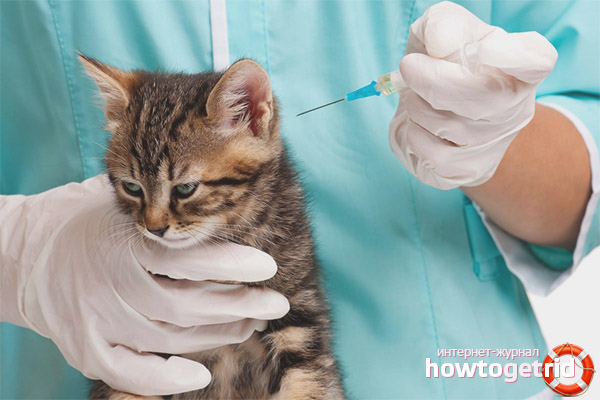
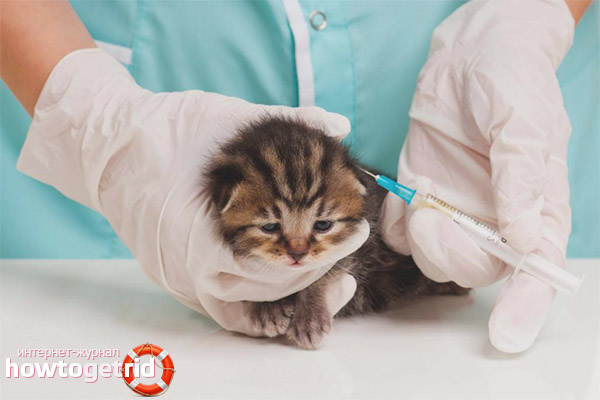
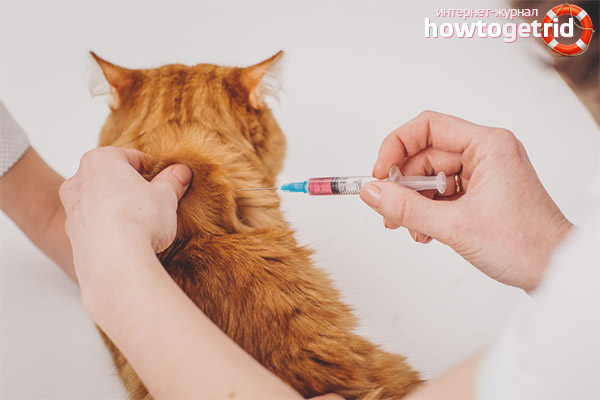
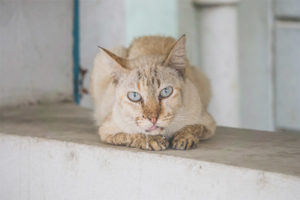

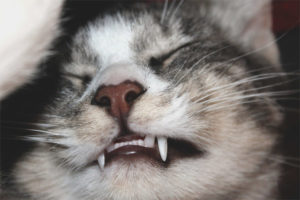


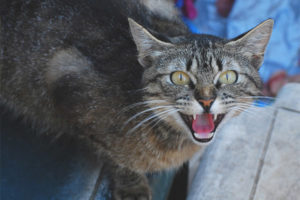
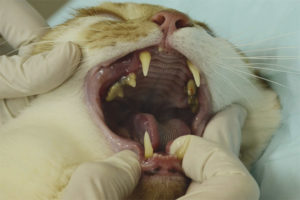
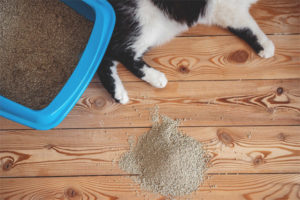
Submit